all of the selves we Have ever been
 My friends are the beings through whom God loves me. - St. Martin I schedule a long phone call with an old friend. We talk for two hours. Though there are years between our in-person visits, we speak regularly on the telephone now that we are both retired. Once, a long time ago, we were young professionals who worked together and lived in the same neighborhood. I rose every morning at 4:30 AM to meet her at the corner for a long walk before the start of our work day. Under the magical spell of friendship, we never ran out of things to say. Each step became a spot of glue that cemented our bond. That was 36 years ago. Time marched on, and both of us moved away, married, raised children, and worked a full career. Each time I dial my old friend’s number, I am young again and back on the corner eagerly awaiting the sight of her. In this early summer season as I set out alone on my daily walks, I think of those days and the summer game of baseball, all those home teams on fire and cheering one another on from the dugout. Life is so much like baseball. The point of the game is to hit the ball, leave home, take the risk of running the bases, and then to return safely to home plate. Some players hit the ball so far they make it home all on their own. Others strike out; they are thrown out at home plate. Some of them pout on the bench of life while others get back into the game. Some are eventually traded. There are some who come sliding back in on the seat of their pants chased by another who seeks to eliminate them. Others just aren’t fast enough; they are thrown out despite their best efforts. Some get injured and hobble home on the shoulders of their teammates. But there is glory for those who hit the ball and even for the ones who get hit by it--the ones who leave home and make it safely back. Leaving home requires individual skill and effort, but winning is about who takes the field with you, who comes up to bat before you and after you, who subs from the bench when you are down. A lot can happen along the way, but returning to home a winner is a team event. And it takes pals to remember the glory days. Home can be a place, but even more so, it is a feeling and an experience. It is where the important things never change. It is the place where the furniture holds our people and our memories, a place where the walls speak to us, but it also can be the people who share those memories. They themselves are an attic filled with all of the tender yesterdays. Home is an enchanted place in my heart where all the people I love live in the same neighborhood. As I enter the homestretch of my life, I realize the fallacy of leaving home to find our fortunes. We think that we are the ones who find happiness—always in hot pursuit, but truth be told, happiness finds us. We leave home to find our fortunes unaware that our fortunes are being built in this enchanted place in our hearts. Now, I wish I could gather all the people I love and plant us all in the same neighborhood, a neighborhood with the best combination of privacy and proximity. I am not sure I would care if I saw all of my neighbors each day, but just knowing they were near would be so satisfying. It is growing more difficult to travel. Sometimes the years or the distance are too much, but memory is a soft path, a familiar, well-worn road. I round the bases often and find that it always brings me back to the street where you live.
0 Comments
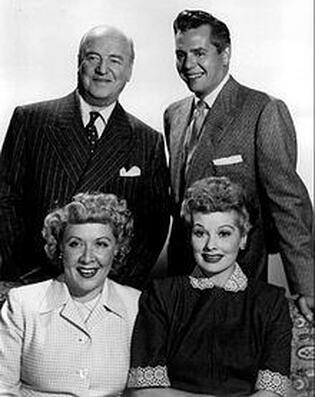 Mirth is God’s medicine. –Henry Ward Beecher After I posted my last blog, Grease on Earth, a friend wrote to share her memory of the family-owned gas station in the neighborhood of her youth. She reminded me that we once called those places “filling stations.” I remember my dad pulling our well-traveled Rambler station wagon up to the pump of our filling station, cranking the window down, and saying to the attendant, “Fill ‘er up with Ethyl.” As a young child, I found that confusing. The only Ethel I knew was Ethel Mertz, Lucille Ball’s partner in crime and at least 50% of the reason that we all loved Lucy. I can recall my still-developing mind turning over that word “ethyl,” and trying to dispel the confusion. It did not compute. Concrete operations of thought made homophones a problem, one that can still bewilder me even at my advanced age. By the time I figured out the distinction between ethyl and Ethel, I was pumping my own gas, and it was unleaded. But once upon a time, I was willing to accept that at the filling station we got gas and filled our car with Ethel, or at least her hilarious qualities. Mirth was much needed for the long drives to my grandmother’s house or across the country when my father deployed. Filling up with good humor can take you a long way and keep you from being tossed out of the car in the middle of the Mojave Desert. Today, I pump my own gas at the local BP station, but it is inside where I fill up. And I am not talking convenience store junk food. When I walk inside my local BP station, I feel like I have entered Cheers, that famous Boston bar operated by Sam Malone and frequented by Cliff and Norm. My mind wanders to the episode in which Norm enters the bar and Cliff calls out, “Hey, there Nahmy, what’s shakin’?” Norm replies, “Four cheeks and a couple of chins.” My heart fills with mirth. In this urban BP station, everybody knows my name. And I know what's shakin'--their long-distance girlfriends, health issues, roommates, and staff holiday parties. We exchange more than money. I know their names, too. In our increasingly individualistic, technology-obsessed world, we still need places where everybody knows our names and something about us, places where we can share a laugh. Mirth is another kind of grease that keeps the wheels of life turning and the valves of our hearts pumping. Friendship has always been my filling station. Some friendships are new or casual. Others reflect a lifetime of loyalty and shenanigans. In every case, they are lead-free, but high octane still. Alloftheselves.com became my filling station during the COVID pandemic when the doors to the world closed. You, my dear readers, filled me up during that long dry spell. I take you with me now on my new journey through breast cancer. I hope you find on these pages some mirth that fills you up, too! 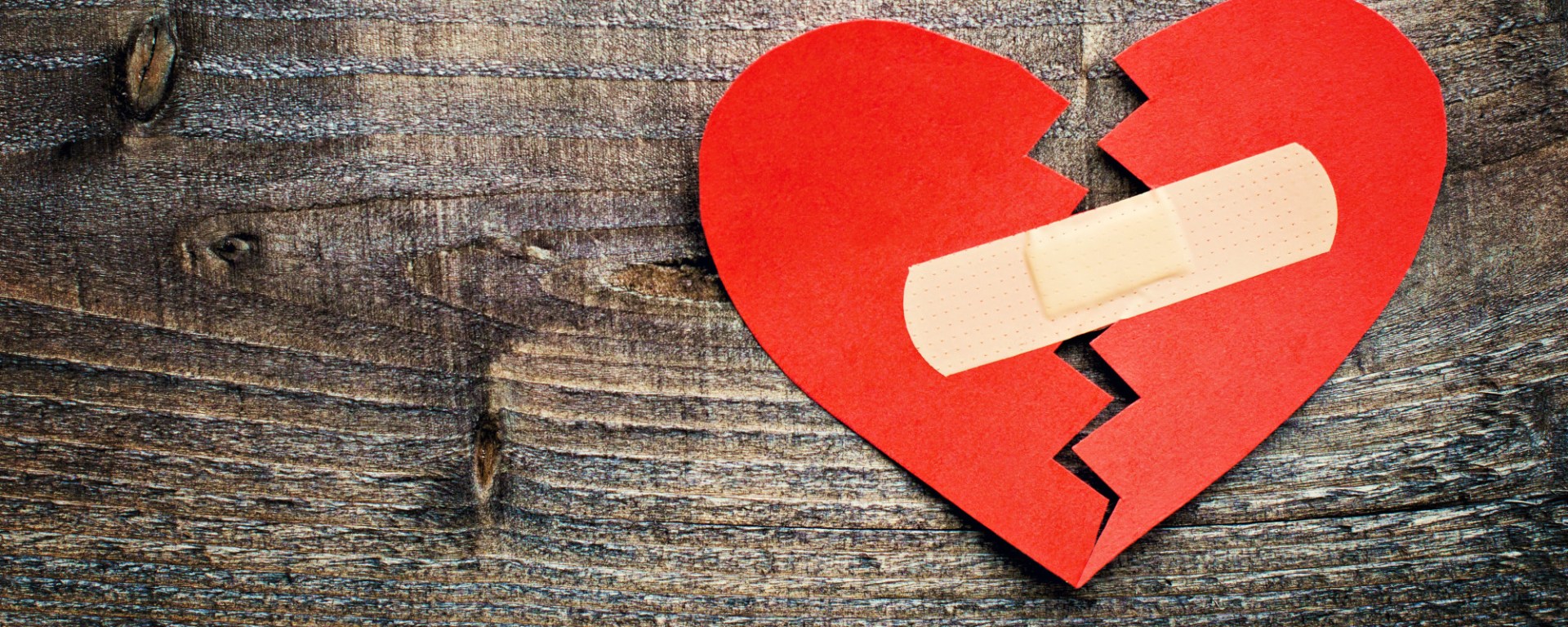 A few weeks ago, a friend of mine suffered sudden heart failure while dining out at a local restaurant. It happened just before the peanut butter pie was served. In what can only be explained as divine intervention, a physician, a navy medic, and a retired cardiac-care nurse were also dining at separate tables in the restaurant. They came to my friend’s aid. In their frantic life-saving efforts, a couple of my friend’s ribs were broken. That was a small price to pay for restoring life to this happy, much-loved, vital woman just a few days short of her 45th birthday. My friend later learned that the restaurant patrons gathered in a circle to pray as the emergency squad drove her away to a nearby hospital. Everyone was shaken. And moved. It is a powerful thing to watch life leave a person, and it is an equally powerful thing to recognize the awesome power in our hands to restore life, to feel the formidable responsibility for the ongoing existence of another human being, to see our hands as life-giving tools--a spark of the divine in each of us. In this time of growing hatred in which too many people are preoccupied with sucking the life out of each other, it is inspiring to learn of a situation in which good hearts responded without hesitation to breathe life into a stranger. It did not matter my friend's political persuasions. All any one needed to know was that she was in trouble and every second mattered. It was a heart-to-heart decision. Humanity and decency prevailed. When there is no one to mock us or create doubt in us, our good hearts are stirred to do the right thing because life matters--to us and to each other. My friend received outstanding cardiac care at the hospital. Chalk one up for science! She is now the recipient of an implanted defibrillator that will provide electric current to power her good heart should it ever again go out of rhythm. I think we could all use a defibrillator to shock us now and then, restore our good hearts when they are out of whack. Plug us in. Bring back this transformative power to the people. May the beat go on. 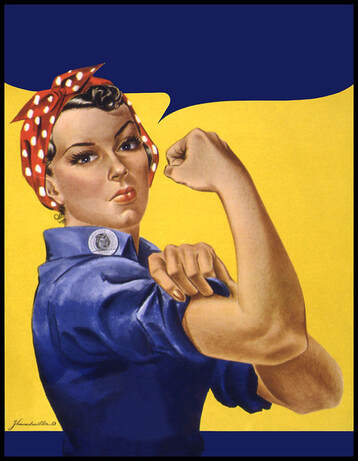 Robinson Crusoe had a right-hand man. Crusoe discovered his faithful assistant while shipwrecked on a deserted island. Crusoe named the guy Friday after the day of the week on which they met. The Guy Friday role didn’t stick outside the confines of fiction (and colonialism and slavery). Men may have sidekicks, but not doting subservient male assistants. Men are too competitive with each other, and a subservient male is not…well, not really a man in the cultural opinion. Hence, the right-hand man became the right-hand woman, a Girl Friday, someone who assists men in powerful positions. Think Della Street to Perry Mason. Men need help attending to the details, but they don’t like to admit it. For too many years, powerful men acted as though they were doing the ladies a favor by “letting them work,” allowing them a front row seat to power, so long as they dusted off the chair and served the coffee while it was hot. They might even have paid the ladies a few bucks to buy a pretty dress. Despite the fact that Erle Stanley Gardner, the creator of Perry Mason, described Della Street as fast as hell on her feet, and someone who had been places, it was Perry Mason who got his own show. Perry Mason was known to put up a good fight in the courtroom and come out a winner, and men are known for the classic response of fight or flight when under stress. Women, on the other hand, fall back on tend and befriend which leaves them cleaning up a lot of the aftermath of fight and flight. Women do the stuff that men don’t want to do. Rather than admit it is important work too, women’s work has been minimized in value because value has been calculated by what men found interesting. Men had it all because women did it all. The division of labor was not a balanced equation. Men could build careers and power because they could single-mindedly focus on careers and power. A woman’s attention had to be divided, and her time shared with household duties, childbearing, spouse, children, neighbors, community, aging parents, bosses, co-workers… Della Street was certainly smart enough to have her own law firm, but if Ruth Bader Ginsburg couldn’t find a job in one, Della was at an even greater disadvantage. Today, she might get that job, but she must also be prepared to take care of everything else including homeschooling the kids through a pandemic, caring for aging parents and in-laws, chairing the PTA, keeping everyone, including the pets, up-to-date on their health care and vaccinations... She might be doing all of this while also recovering from the wounds of war and military service, or while recovering from the many transitions of serving as a military spouse. Men are judged on one role: man. Women serve as wives, daughters, sisters, mothers, friends, coworkers, and are judged ceaselessly on an endless set of expectations. People discard these kinds of thoughts coming from women as “man-hating.” It is another form of disregard for women’s needs and opinions. It turns the conversation into a fight from which women too often flee. This is a necessary and timely conversation. It is not about starting a fight with men. It is about tending to the contributions of women: caring for others matters, attending to details matters, cleaning up messes matters. The world doesn’t work without it--for women or for men. A man calls his faithful assistant Friday, a practical name reminding him of the day of the week on which they met. To get Friday to do the dirty work, Crusoe enslaved him. Women don’t want to be enslaved. Women do want to work and perform well in all of their roles chosen and assigned. And while women need some help too, they don’t have faithful assistants or servants; they have friends. And they tend to them every day of the week. Let’s face it, if all the men in the country took the same day off, there might be peace on earth. If all of the women took the same day off, the country would collapse, proof that women ARE infrastructure. Women tend and befriend, and they bend. We can’t allow them to break. The country owes a debt to women who keep the world working. Mitch McConnell, Joe Manchin, and the rest of you who show up in clean laundry--the bill is past due. Women need faithful assistance too. (And, here, I must give a shout-out to my own Gal Friday. She came into my life as a coworker when I was shipwrecked in Columbus, Ohio. She had landed on the same deserted island a few months earlier. We sat next to each other at work for many years. She was a faithful co-worker and has remained a faithful friend. During the pandemic, I experienced a period of declining vision which increased my isolation. My Gal Friday came faithfully every Friday evening to offer friendship, companionship, assistance, and adventure. She has been my steady, unbending infrastructure in a time of biological and social collapse. My Gal Friday is pretty good Saturday through Thursday too! I am grateful to you, Kristi, well beyond these few words.) 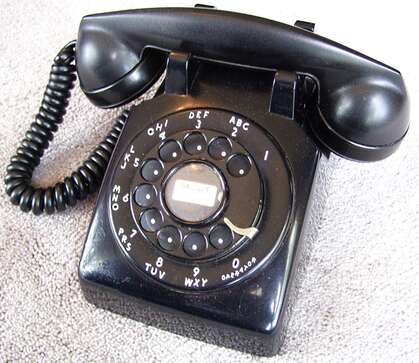 The English language can be slippery, and a lot of words sound alike. I sometimes find myself living in a parallel universe with others who share my space. Younger people think that older people can’t hear. That’s not my problem. I don’t need volume; I need context. And maybe a little less background noise. I experienced a classic case of such confusion a couple of years ago after I was recruited for a two-year contract job in Missouri. I pared down my possessions to just what would fit in my car and started driving. I knew no one in Missouri. I sublet an apartment and settled in. I loved the small rural community with its two main streets and slower pace of life. Everything I needed was clustered within three miles of my home. The welcoming culture of the town and its conveniences were a nice relief from the aggressive traffic and harried pace of the big city I left behind. This could be home. One sunny Saturday morning I set out on routine errands. I did not get far before I saw flashing lights and slowing traffic. As I inched toward the scene, I could see that a car had driven through a storefront. Crumbling bricks and shattered glass filled the parking lot where a vape shop once stood. The sight of a car’s rear end sticking out of a collapsing building was peculiar enough, but what was even stranger? It was the second such accident I had seen in less than a week. What have I gotten myself into? I called a co-worker who was a new friend to tell her what I had witnessed. My friend was not aware of the fresh accident, but she seemed to know quite a bit about the earlier one. “Oh, yes! I heard Alexis drove through the window of the candle shop.” My friend said this as though Alexis was someone I should know. I checked off the names on my short mental list of people I had met in Missouri, but there was no one named Alexis. “Who’s Alexis?” I asked. “Not Alexis. A LEXUS,” my friend shouted into the phone’s receiver. “Oh!” Once we cleared that up, my friend proceeded to share another interesting bit of local gossip--some wrong perpetrated on Dee Dee. “Who’s Dee Dee?” I asked. “Not Dee Dee. THE DD. The DD Highway!” Oh, again. I thought this kind of conversation only happened on greeting cards, but my friend and I had a good laugh over it, and not just once. Our friendship was cemented by a case of mistaken homophones. If laughter is good medicine, it is also strong glue. It is inside jokes such as these that help to form the enduring bond of friendship. During the pandemic, my friend adopted a puppy and named it Alexis. Just to be clear, this Alexis was nowhere near the candle shop in 2019. It is now perfectly evident that Alexis is a pet and an out-of-control Lexus can do a lot of damage to a storefront. Thankfully, a couple of poor gals named Alexis and Dee Dee did not end up serving time for crimes they did not commit. I think we can agree that I should never enter a court of law to provide testimony based on hearsay. I returned to Ohio just ahead of the pandemic. Cars protruding from collapsing buildings now seem like a minor social problem compared to disease and conspiracy theories. Confusion is everywhere, and troubling news easy to come by. Some of the news is so strange, in fact, that I find myself full of doubt and afraid to speak. Not everyone is a good friend who will find humor in auditory mix-ups. Today, it might even get me killed. And so, I find myself questioning everything: Is there a heroin problem in my community or a heroine problem? Given the current state of politics and reports of corruption at the Columbus Zoo, is it guerilla warfare I should fear or gorilla warfare? If someone tells me that a hummer interrupted the school’s choir performance, should I call a tow truck or the principal? It’s all too much—a classic case of homophonophobia. And to whom should I turn for treatment? A Colonel of truth perhaps.  A friend of mine lives in a suburban neighborhood where the wildlife is becoming too friendly, some might even say BOLD. Despite repeated attempts to discourage them, the groundhogs have taken up residence underneath decks and porches and the deer walk right up to the front doors and ring the bells. The family pets do little to deter the wildlife, and that includes a pet pig that can moonwalk on command. It appears that the animals have taken up the lives we used to have. My friend spent the first half of the pandemic trying to woo a groundhog out from underneath her back deck and then keep him out. Since I am not sure where all of this is headed, my friend shall remain anonymous. Let’s just call her Q. Q began her interventions by placing a small fence around the groundhog’s front door. To no avail. The groundhog simply dug a bigger hole and went underneath the fence. Next, Q piled small stones around the entrance to the tunnel, but the creature moved the stones to the side, crafted a pair of gargoyles that looked remarkably like my friend, and went on inside. Q thought the natural animal fear of a predator might work. Q got a large plastic owl and placed it at the entrance. The groundhog knocked the owl over, slapped it to the side, and spit on it before regaining entry to its groundhog digs. Giving up on barriers, Q then tried appealing to the groundhog’s senses. Q sprayed the area with ammonia. Again, to no avail. Perhaps, the scent was no worse than the typical smells of a groundhog home. Q also tried sprinkling cayenne pepper at the entry, but it appears that the creature preferred life spicy. Shiny, spinning pinwheels were no distraction and may have been enough extra wind power to provide electricity to the underground tunnel. Q tried sleep deprivation as a discouragement strategy and kept bright lights focused on the groundhog’s home night and day. Q was pretty sure she heard the groundhog laughing at her. Desperate, Q left the groundhog a written notice of eviction and posted a Keep Out sign at the entrance to the hole beneath the deck. Q later found a tiny pair of reading glasses in the snow. The Keep Out sign was turned around with the words Live, Love, Laugh printed on the back. There was no response to the eviction letter. Q then sprinkled baking soda around the deck to track the groundhog’s footsteps so that she would know when it left the tunnel and which direction it had gone. While the animal was out, she backed up the truck and filled the area with large rocks. Q says she hasn’t seen the groundhog since, but Q has no will left. If Q sees signs of the groundhog’s return, she plans to declare him a dependent on her income tax return. Now the neighborhood is getting together on a Zoom call to discuss the deer problem—upping their game so to speak. My friend is eager to hear what the neighbors have to say. This has me worried. We are all a little on edge given the politics, the pandemic, and the weather. I remind my friend of the lyrics to that old folk song, Home on the Range: …where the deer and the antelope play…never is heard a discouraging word and the skies are not cloudy all day. We need that… but I think it might be too late. 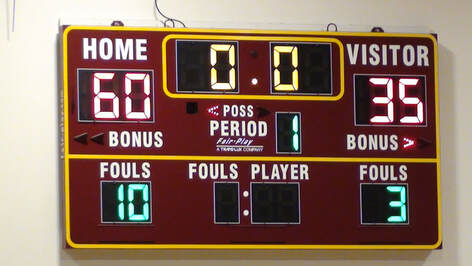 our It has been a stressful week. Our citizen-selves seemed fully engaged. With all eyes on the presidential election results, it was difficult to get any shut-eye. We all rejoice when we our team wins, but every American can relate to the agony of defeat. Each of us has a history of disappointments, losses, and experiences that wound and hurt. For all of us, it begins in childhood, and we navigate those waters throughout our lives. No matter our age or accomplishments, a loss can makes us feel like that scolded child who could never do anything right in the eyes of his father, or like the rejected school girl who never got picked for the teams, or, perhaps, like the humiliated teen who wets his pants as he runs from a snarling dog while his friends stand on the sidewalk and laugh. We each have our defining stories. I can’t say we always get over them, but most of us get through them. Some keep reliving those experiences to feed their anger, hatred, and retaliation. Others become paralyzed with self-doubt, anxiety, and withdrawal. For most of us, the hurts eventually lead to insight, empathy, and resilience. Thankfully, most of us lick our wounds in private. Our losses are not on public display for the entire world to see and exploit for entertainment value. I have heard President Trump poke fun at empathy, and yet, I imagine he could use some today. The agony of defeat can cloud our thinking, but losing the game does not make us losers. Sometimes we have to put on our magnanimous hats to restore normalcy and reach for greatness. Each of us would like to be remembered not for those silly moments when we were real characters, but for the important moments when we revealed our real characters. Most of us survive our falls by getting up before the bus runs over us. Even with our legs broken, we eventually find a way to put our best foot forward and keep walking. As Dr. Claire Weekes once counseled an anxious client who was afraid to cross the street, “Even rubber legs will get you there.” That has been my mantra in the thirty years since I first read those words. I have tried many things in my life. None of them made me rich or famous. By objective assessments, many of them were failures. But all of them made me friends. That is the currency with which I measure my success, and friendship is the ointment that has healed all of my wounds. If you are suffering some agony, Dr. Weekes would say, “It is never too late to give yourself another chance.” * * * * Some other tips for coping with anxiety from Dr. Claire Weeks in Hope and Help for Your Nerves (1990):
|
AuthorLilli-ann Buffin Archives
July 2024
Categories
All
|
 RSS Feed
RSS Feed